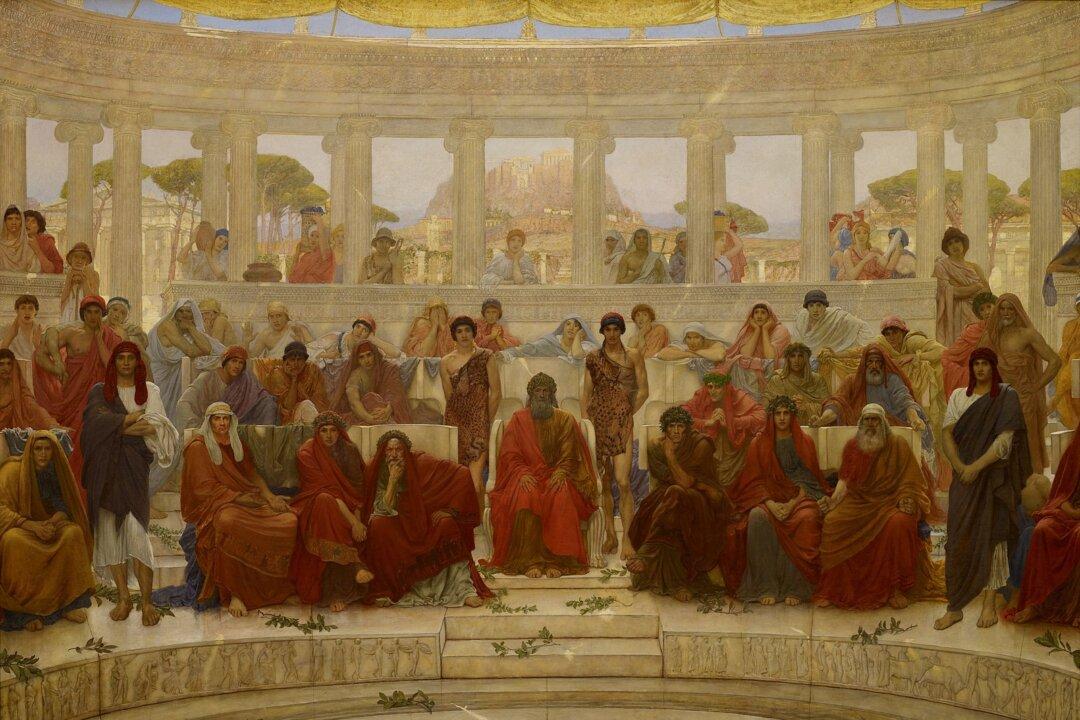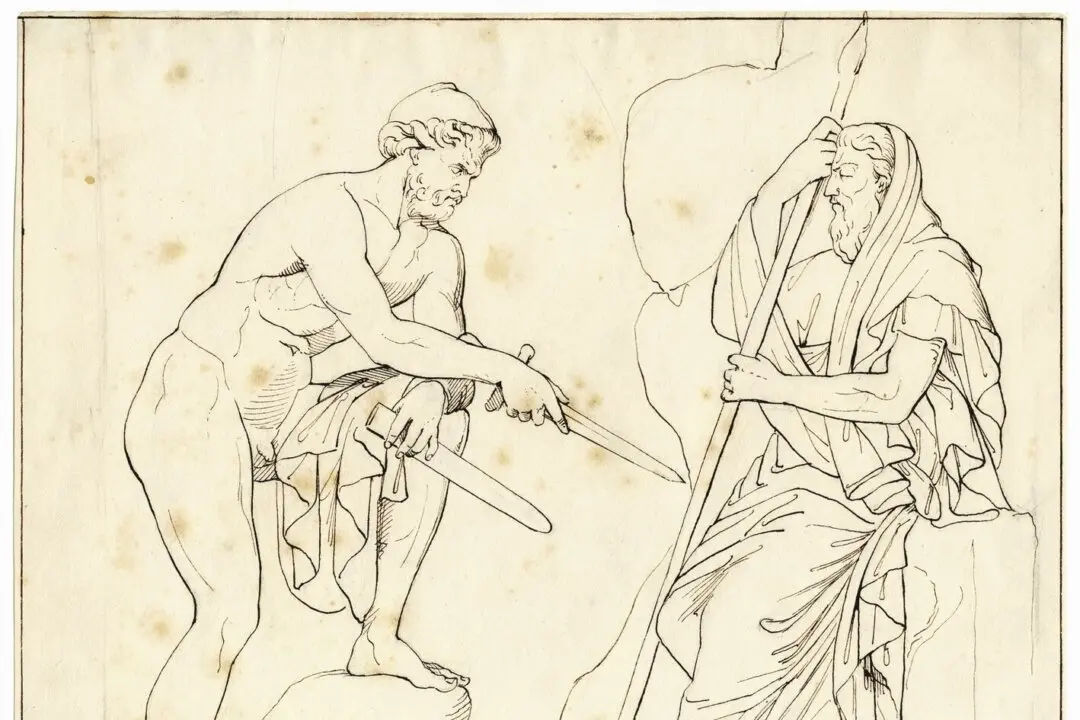“He who learns must suffer” is one of many famous lines from Aeschylus’s “Oresteia,” the only surviving trilogy of Ancient Greek tragedies. A tale of murder, revenge, and resolution, the trilogy raises lasting questions about justice and its importance.
Aeschylus: Warrior and Tragedian
Born in Eleusis, near Athens, Aeschylus (circa 525–455 B.C.) belonged to the Greek property-owning aristocracy. He grew up working in a vineyard. Legend has it that Aeschylus once saw the god Dionysus in a dream. Dionysus ordered him to quit his job and become a playwright. As soon as he woke up, Aeschylus began writing tragic plays. He eventually became one of the most acclaimed tragedians of the ancient world.Sadly, only seven of his 80 or so tragedies survive. The “Persians” narrates the demise of Xerxes, the Persian king who sought to colonize the entire Greek peninsula. “Prometheus Bound” focuses on the fate of Prometheus, the Titan who stole fire from the gods and gifted humans language, math, and artistry. The “Suppliants” follows a group of maidens who find refuge in the Greek city-state of Argos after fleeing Egypt to avoid forced marriages. And the “Seven Against Thebes” tells of two brothers’ bloody struggle for power.






